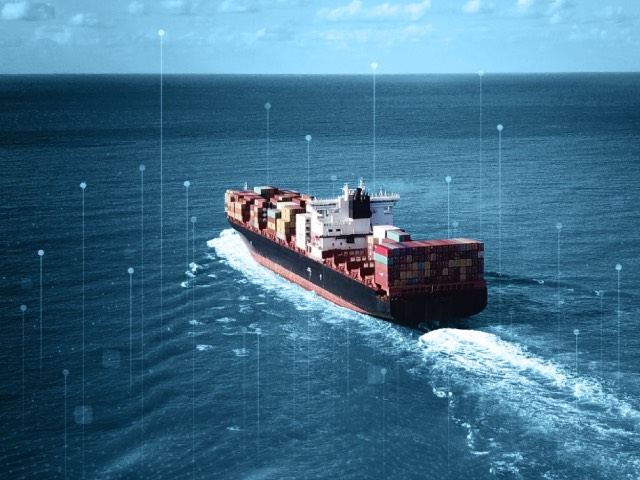by Morten Lind-Olsen, CEO
In shipping, as in any industry, being connected to the rest of the world via high-speed broadband is a prerequisite for doing business. Commercial vessels require reliable data communications – to stay connected with their main offices, clients and ports, to satisfy crew welfare demands, and to meet ever-increasing client expectations.
However, while land-based industries have consistent connectivity and hardly any bandwidth limitations, the bandwidth available to vessels at sea has not kept pace. The shipping industry has been somewhat lagging in terms of real-time, cost-effective connectivity – until now.
The Internet has conquered the blue ocean
There are several new initiatives on the horizon that will significantly improve connectivity at sea – established players like Inmarsat together with a newcomer like SpaceX Starlink are all introducing new footprints and increased capacity. A beneficial ‘side effect’ is that the commercial shipping sector will get bandwidth several orders of magnitude better than the current traditional and expensive satellite-only options.
According to DNV GL, the overall VSAT network capacity over ocean regions will grow to some 200 Gbps in 2025. This implies a massive increase in data transfer rates and reduced cost per bit for the Internet-connected vessels.
Consequently, including ships to the Internet way of working is becoming the norm, and ships can now become integrated into the terrestrial systems and routines – albeit not overnight.
From a business perspective, what is the value in having your ships available and accessible to all supply chain stakeholders, at all times?
You need data access – at all times
In terms of crew welfare, Internet access is vital – but equally important is the guaranteed and secure flow of business traffic. More and more shipping companies realise that ship connectivity can be leveraged for improved business and vessel performance.
As discussed in previous articles, improved ship connectivity and smart use of ICT systems enable you as a shipowner, manager, or operator to deliver the transparency and value that your customers, authorities and business partners increasingly demand. This includes complying with environmental regulations and reporting standards, as well as sharing information and data for the benefit of the whole industry.
Reliability is key
Modern ships are virtually floating computers, generating vast amounts of data through onboard IoT systems and sensor equipment. The more you are prepared and organised to benefit from these available data, the better your business decisions will be. At the end of the day this will result in lowered cost, improved vessel and environmental performance – and in short, a more profitable business.
Shipboard data also needs to be made available to clients, regulatory bodies and vendors – often in real time.
In other words, your sea operations depend on reliable and secure Internet access.
Read more: The value of ICT in the maritime industry
A strong enabler gives the best return on your investment
As a shipowner, you have invested significantly in satellite communication systems onboard your vessels. For obvious reasons – the 24/7 exchange of business-critical data between your ships and operations landside requires a trustworthy and competent enabler.
Reliable and secure Internet access for your vessels gives the best possible business flow. It allows you to integrate your ships at sea with the rest of the organisation, as well as with clients, port authorities and a slew of third parties.
Experience points to two key factors as essential in achieving the best possible ship/shore integration:
- Invest in quality enterprise IT solutions adapted to and purpose-built for maritime operations
- Select a solutions partner that has the necessary credentials, expertise and level of support to deliver the results you need.
Summary
The shipping community have, for a long time, been taking advantage of the opportunities offered by digital solutions. As real-time connected ships have become the norm across the industry, digital solutions rapidly integrate ships even more firmly into the company business operations and communications. Internet has conquered the oceans.
However, Internet infrastructure at sea is still fragile and vulnerable to cyber threats and thus needs operational oversight and requirements far beyond the needs at the terrestrial office operation. Internet at sea is not provided “from a cable in the wall”.
Your smartest business move as a shipowner or manager to meet these extensive requirements is to incorporate a comprehensive maritime digital service platform across your fleet.
Whoever provides the satellite link, you need a solution that allows you to extract the business value of the digital ship – by simplifying, streamlining, and safeguarding your digital shipping operations, and by providing a continuous link between ship and shore.






































